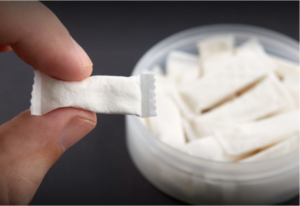Comparing the safety of nicotine pouches and chewing tobacco involves assessing various factors related to health risks and potential consequences. Here’s a detailed comparison:
Nicotine Pouches:
- Tobacco-Free: Nicotine pouches do not contain tobacco leaves, which eliminates exposure to many harmful chemicals produced during tobacco fermentation and combustion. This reduces the risk of certain tobacco-related diseases.
- Nicotine Content: Both nicotine pouches and chewing tobacco deliver nicotine, an addictive substance. Nicotine pouches typically provide nicotine without the harmful chemicals found in tobacco. However, the nicotine content can vary, and users should be cautious about nicotine addiction.
- Fewer Harmful Chemicals: Nicotine pouches are generally considered to contain fewer harmful substances than chewing tobacco, making them a potentially safer option for nicotine consumption.
- Oral Health: Nicotine pouches are less likely to cause severe oral health problems compared to chewing tobacco. While they may still lead to gum irritation or tooth sensitivity, these effects are generally milder.
- Relative Risk: Nicotine pouches may be perceived as a potentially safer alternative to chewing tobacco, primarily because they do not contain tobacco leaves and the harmful chemicals associated with tobacco fermentation.
Chewing Tobacco:
- Tobacco Leaves: Chewing tobacco is made from fermented tobacco leaves, and its use has been associated with an increased risk of various health issues, including oral cancer, gum disease, and heart disease.
- Harmful Chemicals: Chewing tobacco contains harmful chemicals produced during the tobacco curing and fermentation process. These chemicals, including nitrosamines, are known carcinogens and contribute to health risks associated with chewing tobacco use.
- Oral Health: Chewing tobacco is well-documented for its adverse effects on oral health, including the development of lesions, gum disease, tooth decay, and oral cancer.
In summary, nicotine pouches are generally considered a potentially safer alternative to chewing tobacco due to their tobacco-free nature and reduced exposure to harmful chemicals. However, it’s essential to remember that both products deliver nicotine, which is an addictive substance with its own set of health concerns. Individuals who are considering using nicotine pouches or chewing tobacco should be aware of the potential risks, consider harm reduction strategies, and consult healthcare professionals if they have concerns about their usage. The safest choice is to avoid nicotine-containing products altogether, especially for non-smokers and individuals who are not already addicted to nicotine.






